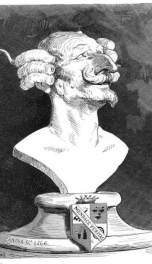Raspe Rudolf Erich

Rudolf Erich Raspe (March 1736 – November 1794) was a German librarian, writer and scientist, and he was called by his biographer John Carswell a "rogue". He is best known for his collection of tall tales, The Surprising Adventures of Baron Munchausen, originally a satirical work with political aims. Raspe was born in Hanover, studied law and jurisprudence at Göttingen and Leipzig and worked as a librarian for the university of Göttingen. From 1767 he was responsible for some collections of Frederick II, Landgrave of Hesse-Kassel (or Hesse-Cassel), before having to flee to England in 1775 after pilfering some gems that were supposedly in his care. He was employed by Matthew Boulton in mines in Cornwall. At the same time, he also authored books in geology and the history of art. He also worked for the famous publisher John Nichols in several projects. In 1791 he moved to Scotland, and after an involvement in a mining swindle there (salting a mine), he left. He finally moved to Ireland where he managed a copper mine on the Herbert Estate in Killarney. He died in Killarney, County Kerry, of typhoid, in November 1794. The Baron Munchausen tales were made famous when they were 'borrowed', translated into German, and embellished somewhat by Gottfried August Bürger in 1786 - and have been a favourite read of subsequent generations, as well as the basis of several films, including Terry Gilliam's The Adventures of Baron Munchausen.
do you like this author?
What readers are saying
What do you think? Write your own comment on this book!
write a commentWhat readers are saying
What do you think? Write your own comment on this author!
write a commentBook list

a descriptive catalogue of a general span classsearchtermspan classsearc
Series:
Unknown
Year:
Unknown
Raiting:
4/5
Show more
add to favoritesadd In favorites

The Surprising Adventures of Baron Munchausen
Series:
Unknown
Year:
Unknown
Raiting:
3/5
Almost everybody is familiar with amazing stories about Baron Munchausen since their childhood. Baron is a very funny character with a number of odd traits, at the same time very simple and noble. This book is a great chance to recall your wonderful memories and experience the desire to laugh constantly when reading about such fantastic adventures. Children would also find the book entertaining and nice, written with imagination and creativity.
Show more
add to favoritesadd In favorites
Book list

a descriptive catalogue of a general span classsearchtermspan classsearc
Series:
Unknown
Year:
Unknown
Raiting:
4/5
Show more
add to favoritesadd In favorites

The Surprising Adventures of Baron Munchausen
Series:
Unknown
Year:
Unknown
Raiting:
3/5
Almost everybody is familiar with amazing stories about Baron Munchausen since their childhood. Baron is a very funny character with a number of odd traits, at the same time very simple and noble. This book is a great chance to recall your wonderful memories and experience the desire to laugh constantly when reading about such fantastic adventures. Children would also find the book entertaining and nice, written with imagination and creativity.
Show more
add to favoritesadd In favorites
What readers are saying
What do you think? Write your own comment on this author!
write a commentif you like Raspe Rudolf Erich try:
readers also enjoyed
What readers are saying
What do you think? Write your own comment on this author!
write a commentGenre
if you like Raspe Rudolf Erich try:
readers also enjoyed
Do you want to read a book that interests you? It’s EASY!
Create an account and send a request for reading to other users on the Webpage of the book!

